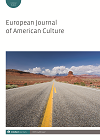
Full text loading...

This article examines the gendered experience of labour in the North American university to theorize its implications for the production of autobiographical writing. Drawing on the work of Dodie Bellamy, Roxane Gay and Heidi Julavits, I make a specifically feminist argument about time, precarity and value in academia, arguing that the job of writing creatively in the academy is complicated by the invisibilization of education and administration as well as the preponderance of women and minorities in non-permanent and therefore precarious academic roles. The authors discussed in this article all play with supposedly marginal literary forms like the diary, personal essay or blog to trouble the institutional overvaluing of canonical work and destabilize what Sarah Sharma calls a ‘patriarchal temporality’ that designates their work and lives as marginal. With a particular focus on Bellamy, who documents her repeated denial of tenure in personal and often sexually explicit writing, I want to interrogate the peculiar circularity of narrating experiences of overwork, insecurity and discrimination in the body of a text that might be read by current or future employers, as women translate their personal and leisure time into new forms of workplace productivity and commit further areas of their life to the university without the promise of liberation from or reform of its oppressive structures.

Article metrics loading...

Full text loading...
References


Publication Date:
https://doi.org/10.1386/ejac_00085_1 Published content will be available immediately after check-out or when it is released in case of a pre-order. Please make sure to be logged in to see all available purchase options.